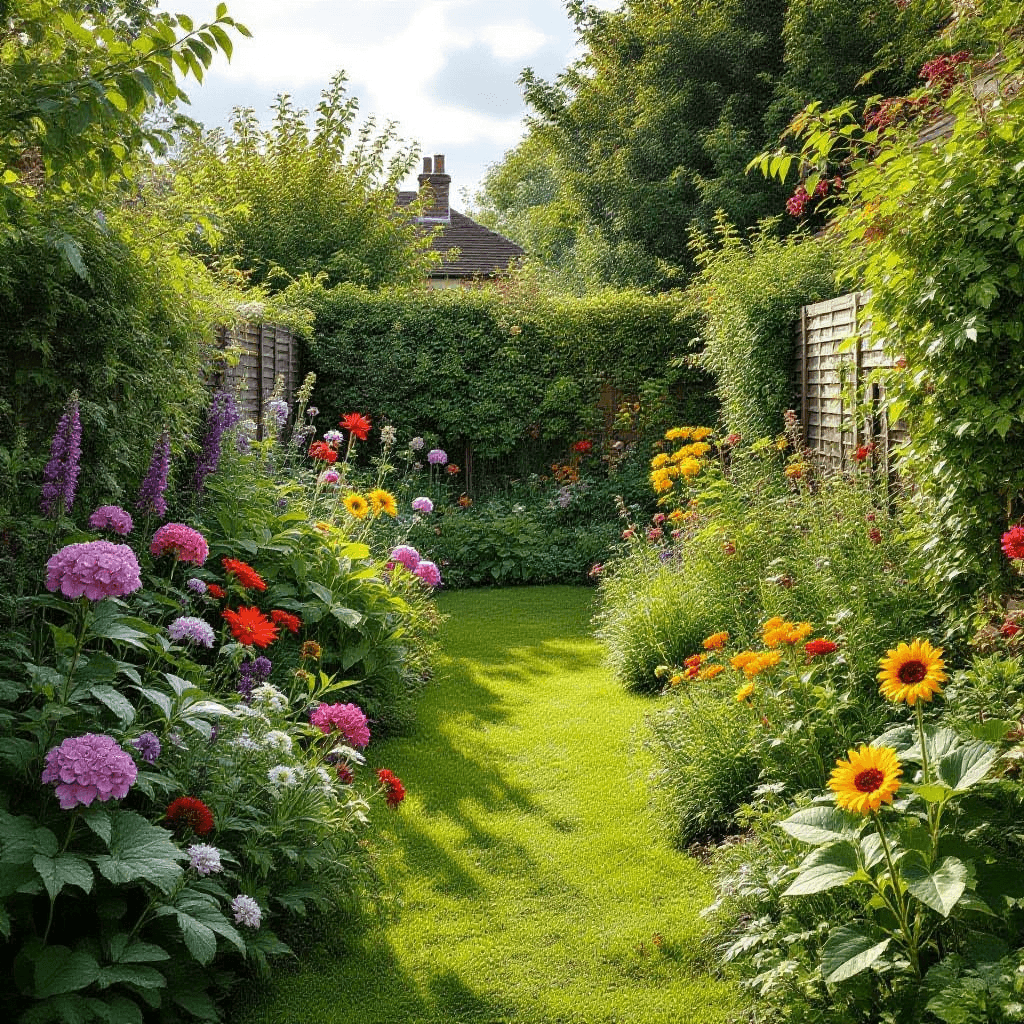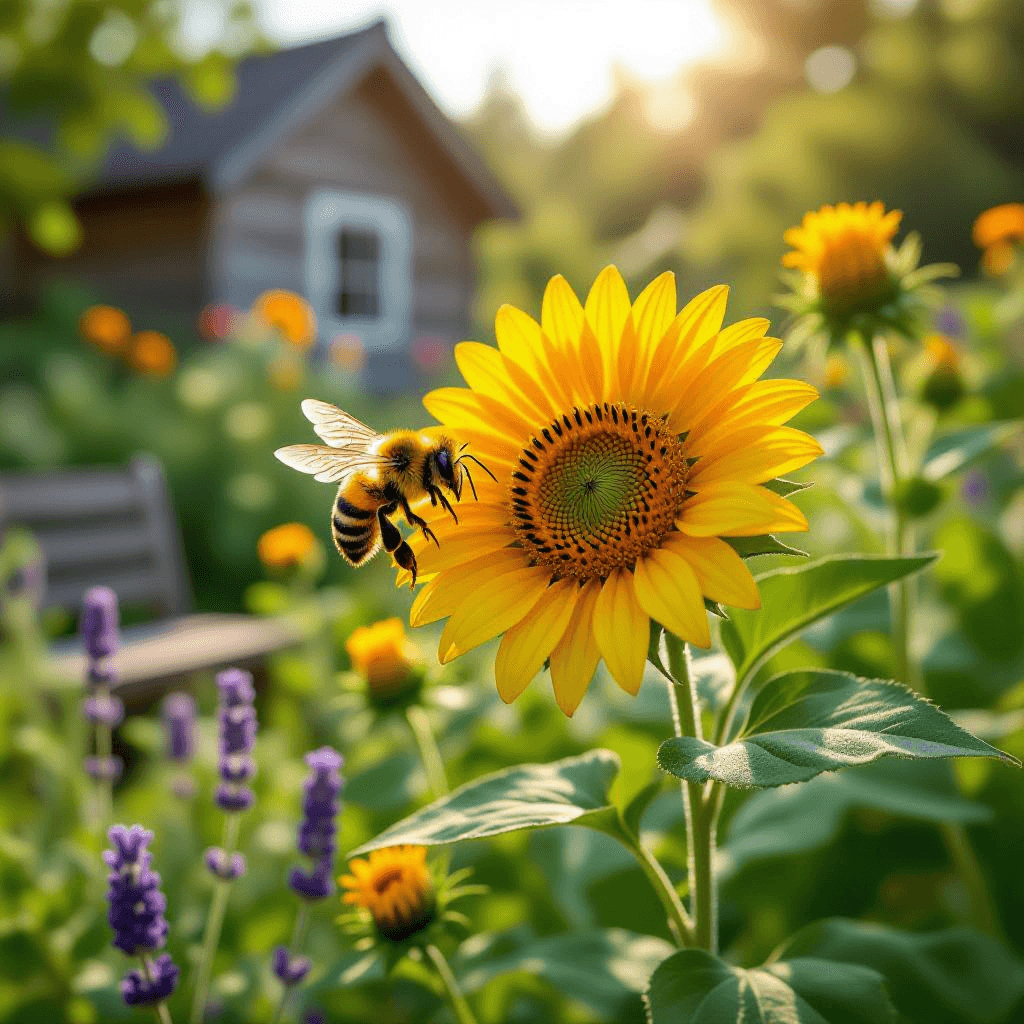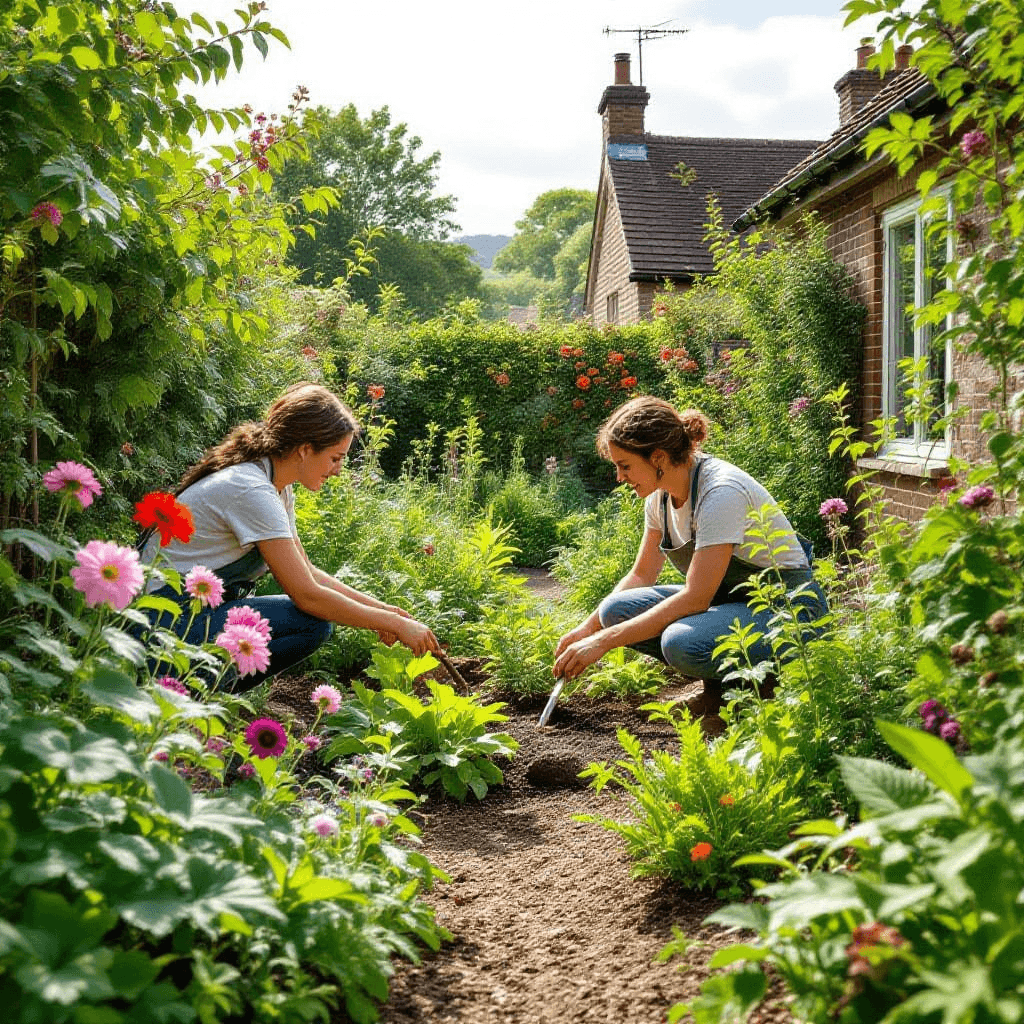Understanding Biodiversity in Gardens
Biodiversity refers to the variety and variability of life forms within a given ecosystem, encompassing different species of plants, animals, and microorganisms. In the context of UK gardens, biodiversity underscores the importance of having diverse ecological components that coexist, contributing to a balanced and resilient environment. Gardens, whether small or expansive, serve as crucial habitats for an array of species, from flowering plants and trees to various insects, birds, and larger wildlife.
In UK gardens, a myriad of species can be found, forming intricate relationships that sustain life. For instance, plants not only provide food but also shelter for insects and birds. Many gardens host pollinators like bees and butterflies, which play an essential role in plant reproduction. Additionally, the presence of birds and small mammals contributes to pest control and seed dispersal, demonstrating the interconnectedness of these species within the garden ecosystem. Each species plays a unique role, ensuring that the ecosystem functions smoothly and remains healthy.
Gardens also act as biodiversity hotspots, particularly in urban areas where natural habitats may be limited. Even modest gardens can significantly impact surrounding ecological networks by providing critical resources — shelter, food, and breeding grounds — for various wildlife species. They help maintain genetic diversity and support species resilience against environmental changes. The fostering of biodiversity in gardens is not merely an aesthetic endeavor; it is vital for ensuring ecosystem health and function. By cultivating diverse plant and animal life, garden enthusiasts contribute to the broader ecological web, supporting wildlife and maintaining the delicate balance required for sustainable living.
The Importance of Biodiversity for Ecosystem Services
Biodiversity plays a vital role in supporting ecosystem services, which are essential for maintaining the health and functionality of gardens. A diverse array of species contributes significantly to improved pollination, pest control, and soil health, all of which are crucial for cultivating thriving garden ecosystems. Rich biodiversity facilitates the presence of a variety of pollinators, such as bees, butterflies, and other insects, which ensure the successful reproduction of flowering plants. This, in turn, enhances the yield and quality of fruits and vegetables grown in home and community gardens.
Furthermore, a diverse garden environment can help regulate pest populations. Natural predators, including birds, beneficial insects, and other wildlife, can manage pest problems more effectively than chemical interventions. By incorporating native plants and creating habitats that attract these species, gardeners can establish a balance that minimizes pest invasions while promoting a healthier ecosystem. Soil biodiversity, which includes various microorganisms, earthworms, and fungi, also contributes to the overall health of the soil. These organisms aid in nutrient cycling, improve soil structure, and enhance water retention, leading to sustainable gardening practices.
In addition to environmental benefits, fostering biodiversity in gardens offers significant social and educational advantages. Community and private gardens that embrace a rich variety of plant and animal life not only create beautiful spaces but also serve as living laboratories for learning about ecology and conservation. These gardens can inspire individuals of all ages to understand the importance of biodiversity and its role in sustaining our planet. As people engage with their gardens and learn about the interconnectedness of species, they develop a greater appreciation for nature and a collective responsibility to protect it. Ultimately, the integration of biodiversity within gardens is a crucial element for enhancing both ecological resilience and community well-being.
Practical Ways to Encourage Biodiversity in Your Garden
Enhancing biodiversity in your garden is not only beneficial for the environment but also adds beauty and variety to your outdoor space. One of the most effective strategies is to plant native species, as they are adapted to the local climate and soil conditions, providing a natural food source for local wildlife. Incorporating a range of native plants can attract different pollinators, birds, and beneficial insects, thus creating a balanced ecosystem.
Creating specific habitats can significantly contribute to biodiversity. For example, installing insect hotels can offer shelter to beneficial insects like bees and ladybugs, while birdhouses can provide nesting sites for various bird species. Additionally, leaving areas of your garden wild can encourage native flora and fauna to thrive. This naturalistic approach promotes an abundance of life while reducing maintenance efforts.
Another crucial aspect is minimizing pesticide use. Chemical pesticides can be harmful to non-target species and disrupt the delicate balance of your garden’s ecosystem. Instead, consider using organic gardening practices that focus on natural pest control methods, such as introducing beneficial insects, companion planting, and promoting soil health. Companion planting can be particularly effective, as certain plants can deter pests naturally while attracting pollinators.
Water features, such as ponds or small water gardens, can greatly enhance biodiversity by providing habitats for amphibians and aquatic insects. Additionally, a well-maintained compost bin encourages the decomposition of organic matter, fostering soil health and providing nutrients for your plants.
For those interested in creating food gardens, consider planting a variety of crops that support pollinators, such as herbs and flowering vegetables. The diversity of plants will not only benefit the ecosystem but also yield a more plentiful harvest. By following these practical steps, gardeners of all skill levels can contribute to a thriving biodiverse environment in their own backyards.
Case Studies and Inspirational Garden Transformations
Across the United Kingdom, numerous gardens have adopted innovative strategies to enhance biodiversity, serving as inspiring examples for others. One notable case is the community garden at the heart of Bristol, where local residents collaborated to transform a vacant lot into a vibrant green space. Initially, the area was simply covered with weeds and litter. With the introduction of native flora, such as wildflowers and fruit-bearing shrubs, the garden has not only improved its aesthetic appeal but also attracted pollinators like bees and butterflies. Testimonials from the community members highlight a newfound connection with nature and a boost in local wildlife populations.
In another example, a private garden in Cornwall underwent a remarkable transformation through the use of permaculture principles. The homeowner, previously unaware of the impact of monoculture gardening, made a conscious decision to diversify their plant selections. By introducing a variety of plants, including herbs, vegetables, and flowering species, they were able to create an ecosystem that supports beneficial insects while providing fresh produce for the family. The garden’s shift from traditional practices to an ecologically-friendly approach exemplifies how personal spaces can contribute to a larger environmental impact.
Educational institutions are also leading the way in promoting biodiversity. A primary school in London successfully integrated a wildlife garden into its curriculum. Students participated in planting native species and constructing insect hotels, thereby fostering both learning and a sense of responsibility towards the environment. Feedback from teachers and pupils illustrates how this initiative not only increased local biodiversity but also sparked a passion for conservation among the students.
These diverse examples demonstrate that whether in a communal setting, a private garden, or an educational institution, individuals can significantly uplift local biodiversity. By implementing thoughtful strategies and embracing sustainable practices, gardeners across the UK are making a positive impact, encouraging others to rethink their gardening habits and inspire change.


